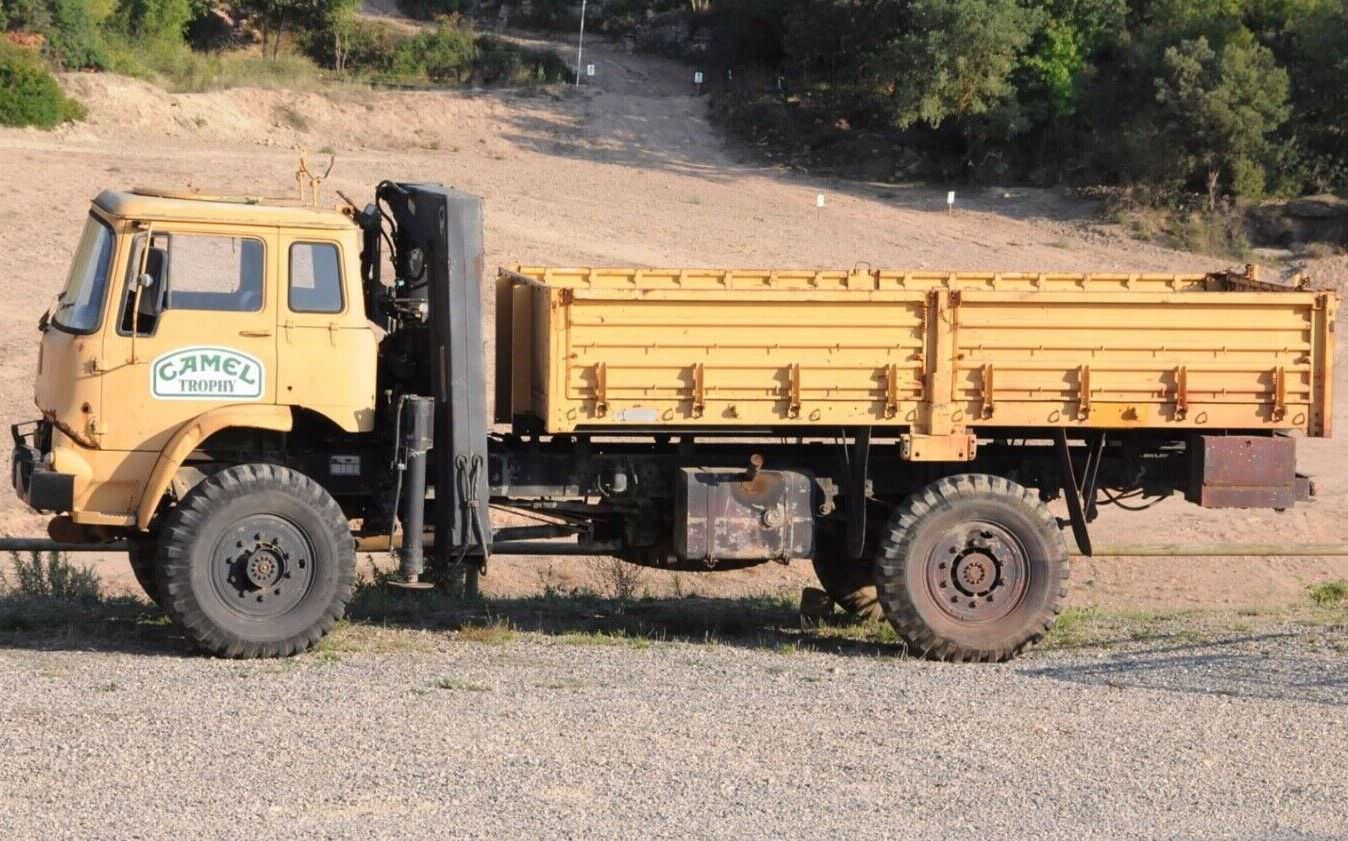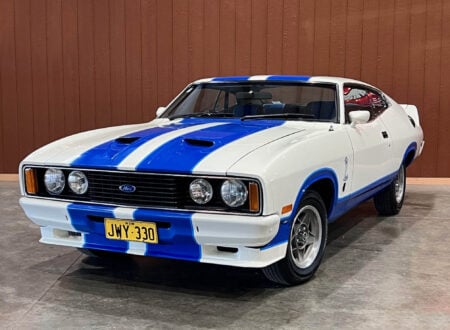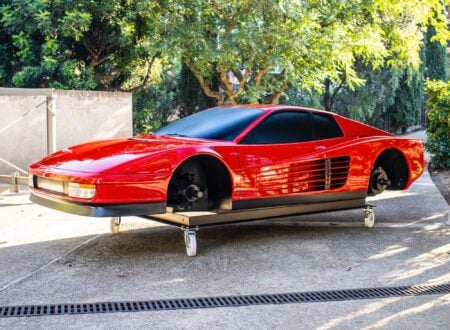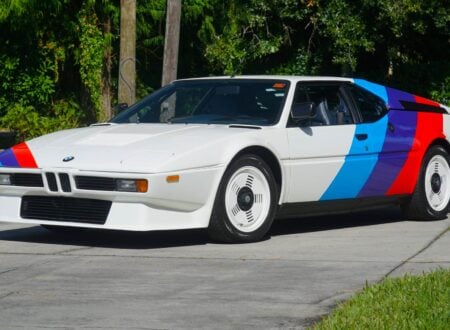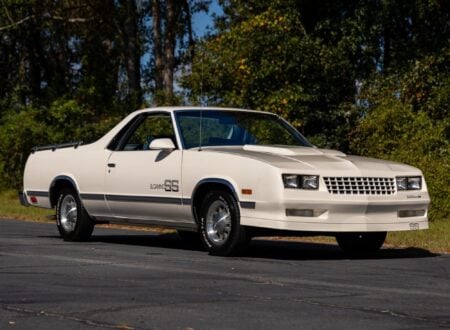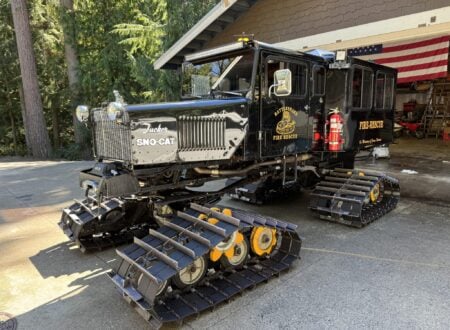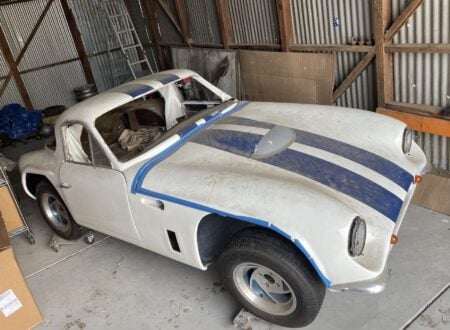This is an original Camel Trophy Bedford MK 4×4 support truck that was built in 1982 and later used in the event. It was tasked with hauling equipment between camps, and its proven ability to carry up to 6 tons off-road would have made it an ideal vehicle for the job.
It’s now being offered for sale out of Melksham in England on eBay as a project vehicle. It’s clear from the images that it will need a full restoration, however for off-road truck enthusiasts it may represent a once in a lifetime opportunity to acquire a Camel Trophy veteran Bedford MK.
Fast Facts – The Bedford MK 4×4 Truck
- The Bedford MK was the four wheel drive military variant of the Bedford TK, a civilian truck that had been introduced in 1960 as a more modern replacement for the Bedford S type truck.
- A 4×4 platform was developed for the Bedford MK that was based on the TK, with heavy duty live axles front and back on leaf springs, a steel ladder frame type chassis, and either a petrol or diesel engine driving the wheels through a manual gearbox and a dual-range transfer case.
- Production of the MK ran from 1970 until 1981 when it was replaced with the very similar Bedford MJ. The “K” had been the designation for the K multi-fuel engine, and “J” was the designation for the newer diesel engined variant.
- Tens of thousands of Bedford MKs were built, they were used by various militaries around the world but the majority were acquired by the British MoD. The MK saw action in both the Falklands War and the first Gulf War with British forces.
The Camel Trophy
The Camel Trophy is now best known for its use of Land Rover vehicles but it isn’t widely known that the first event actually included three teams of Germans exploring the Amazon rainforest in Jeeps in the year 1980.
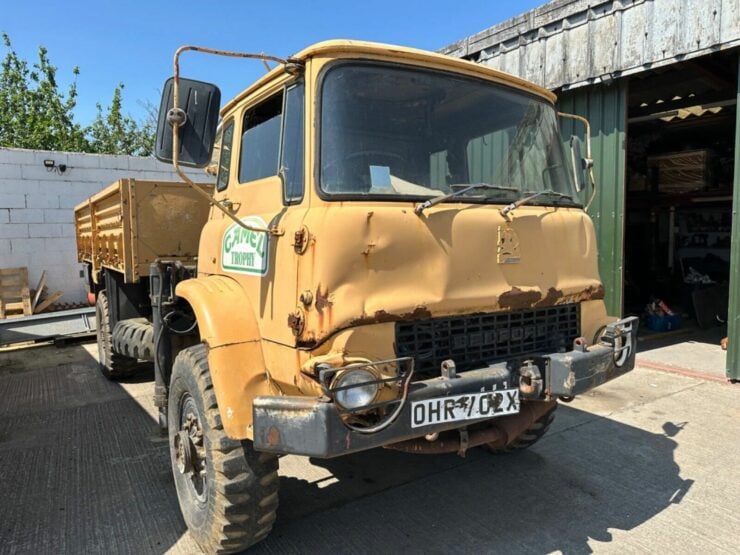

Land Rover became the sole vehicle supplier in 1981 and would remain in this role until the final running of the event in the year 2000. After the year 2000 cigarette advertising bans in sport killed off the Camel Trophy and cigarette brandnames began quickly disappearing from race cars and circuits around the world.
Over the course of its 20 years the Camel Trophy was run in a remarkable variety of locations across wild terrain in countries like Papua New Guinea, Madagascar, Siberia, Sulawesi, Zaire, and many others.
After each event some of the competitors would purchase their own vehicles, a significant number were left in the host country, and many that were brought back to the UK were stripped of their special parts – making it exceedingly challenging to find original vehicles today.
The majority of Land Rovers and Range Rovers that took part in the event were heavily modified by the specialist team Land Rover Special Vehicles.
Above Video: This clip comes from a 1993 episode of Motor Week, the Motor Week crew fly out to Borneo to cover the Camel Trophy which was taking place in the South East Asian country that year. It would be the first time that an American team won the event.
These modifications tended to vary year to year however they typically included things like full roll cages, winches, snorkels, upgraded suspension and transmission components, Brownchurch Bull bars and bush wires, tow hitches and recovery points, under body protection, and steering guards.
The Bedford MK 4×4 Truck
The Bedford MK was a military truck developed in the late 1960s on the platform of the civilian Bedford TK. The MK was introduced formally in 1970 and it would be sold in both MK and MJ designations until 1992 with tens of thousands made – almost all for military use.
The MK uses a modified version of the Bedford TK chassis, now fitted with live axles front and back on leaf springs. The truck has drum brakes front and back, standard at the time, and it would be fitted with either a petrol or diesel engine which sends power back through a manual transmission and a dual-range transfer case to the axles.
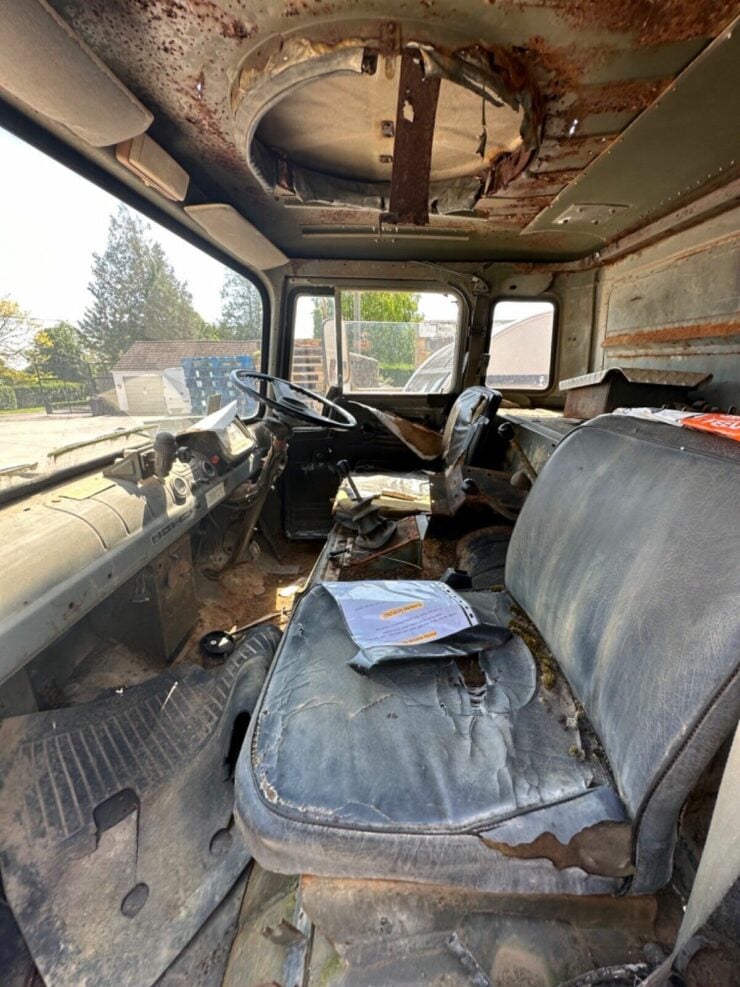

The cab was a CoE (cab over engine) type design, it was built in steel by Marshall of Cambridge, and featured a wide one-piece windscreen and seating for either two or three people abreast depending on the specific variant.
In the rear the tray back had folding sides and a folding rear tailgate. A wide variety of special versions were also developed including flatbed, crane, wrecker, dumpster, and troop carrier variants. The troop carrier could carry 20 soldiers in the rear plus two up front in the cab.
There was one special version built for the British General Post Office which was used for installing telegraph poles. It was nicknamed the “Pole King” and is likely the single most famous Bedford MK ever made.
In 1981 the Bedford MK was upgraded into the Bedford MJ as the K multi-fuel engine was superseded by the J diesel engine. The MJ would remain in production into the early 1990s, finally finishing in 1992.
The Ex-Camel Trophy Bedford MK Truck Shown Here
The truck you see here is likely one of the last batch of Bedford MKs built before the MJ took over. Though the eBay listing doesn’t specify, this truck was most likely originally used by the British MoD before being sold off as military surplus.
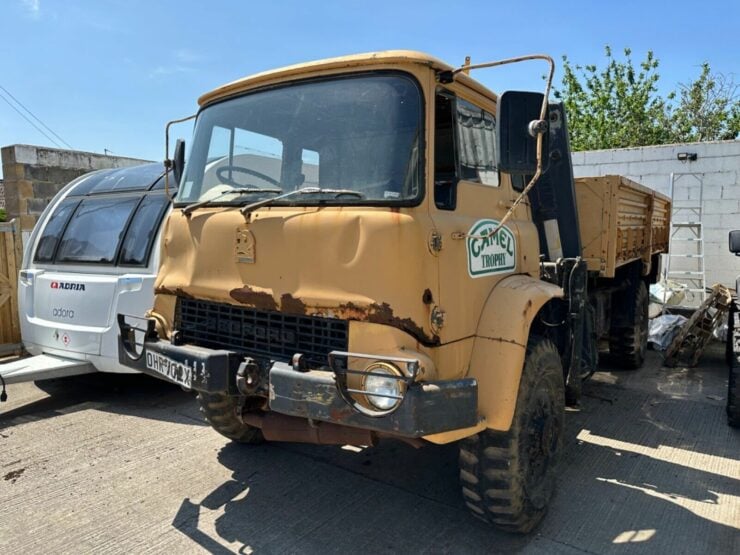

Many military surplus examples of the Bedford MK were bought by civilians and used for a wide variety of purposes, perhaps the most common being conversion into overland 4×4 camping trucks.
This MK was given a new paint job in that “sand glow” shade of Camel Trophy yellow (color code: Sand Glow Land Rover Camel Trophy 94/97) and the Camel Trophy logos were added to the doors on either side. This truck is one of the crane variants with a hydraulic Atlas Crane behind the cab that can be used for loading and unloading – likely the reason it was used for the Camel Trophy.
Little is known about the operational history of this truck in the Carmel Trophy however it was sent to Seville, Spain for international selections in 1996. It was photographed there and later appeared in Nick Dimbleby’s Camel Trophy book at the selections.
It’s currently being offered for sale on eBay in the UK as a project truck – it’s clear that it’ll need a full restoration, however it would be a fascinating vehicle to work on and spare parts availability should be good.
If you’d like to read more about this truck or register to bid you can visit the listing here, it’s being sold out of Melksham in England.
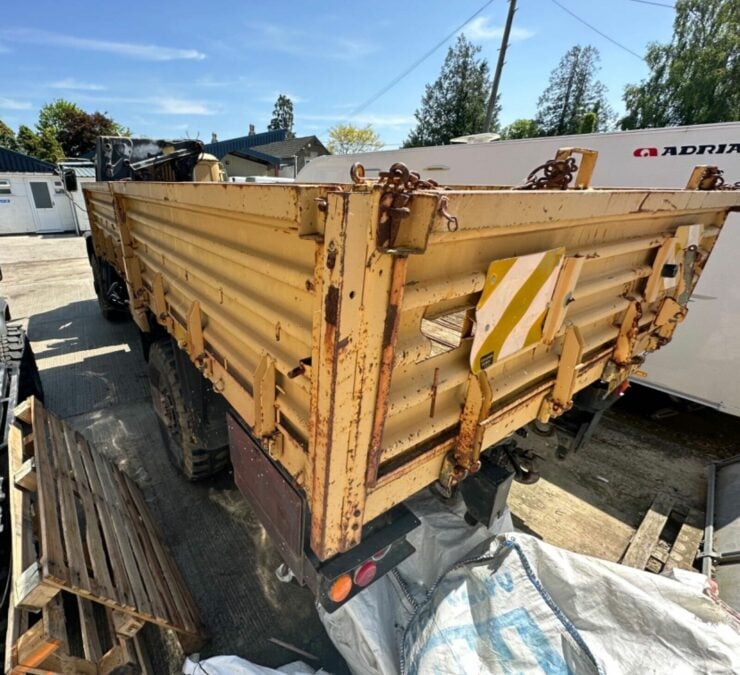
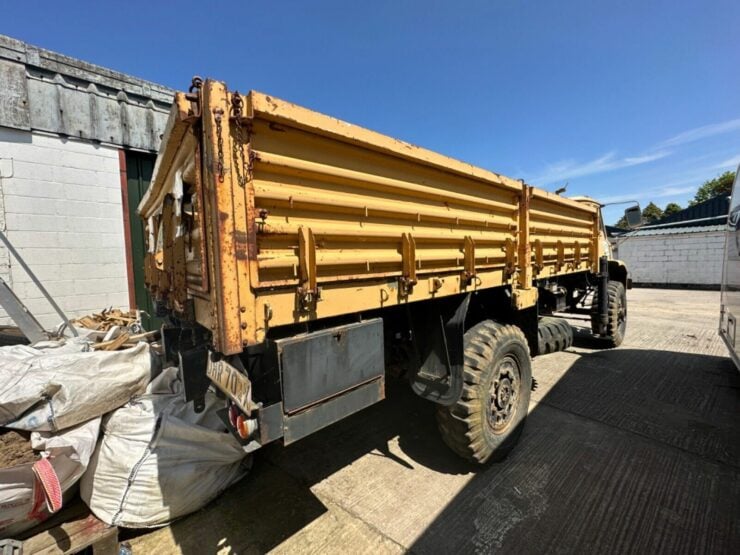
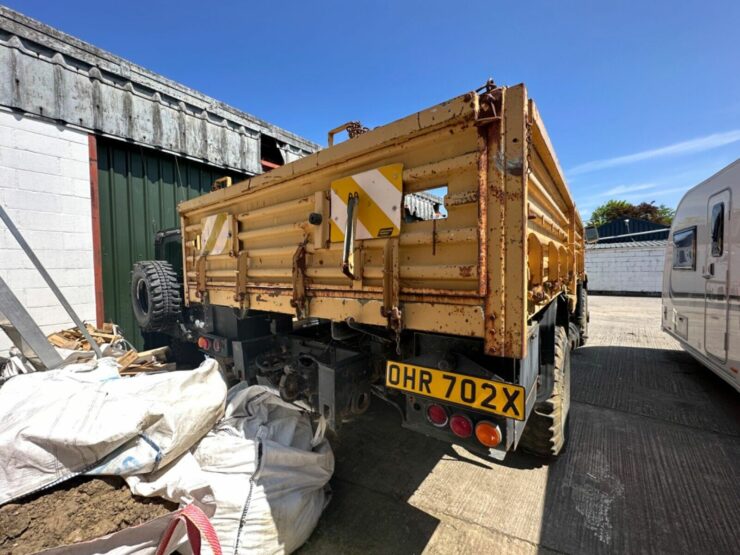
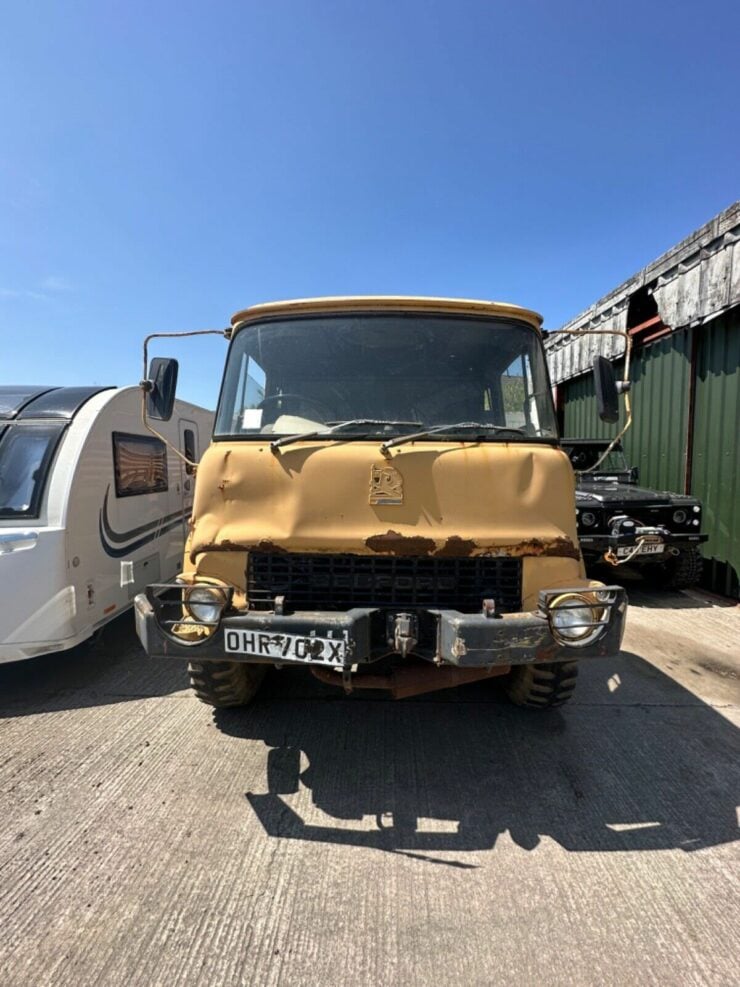
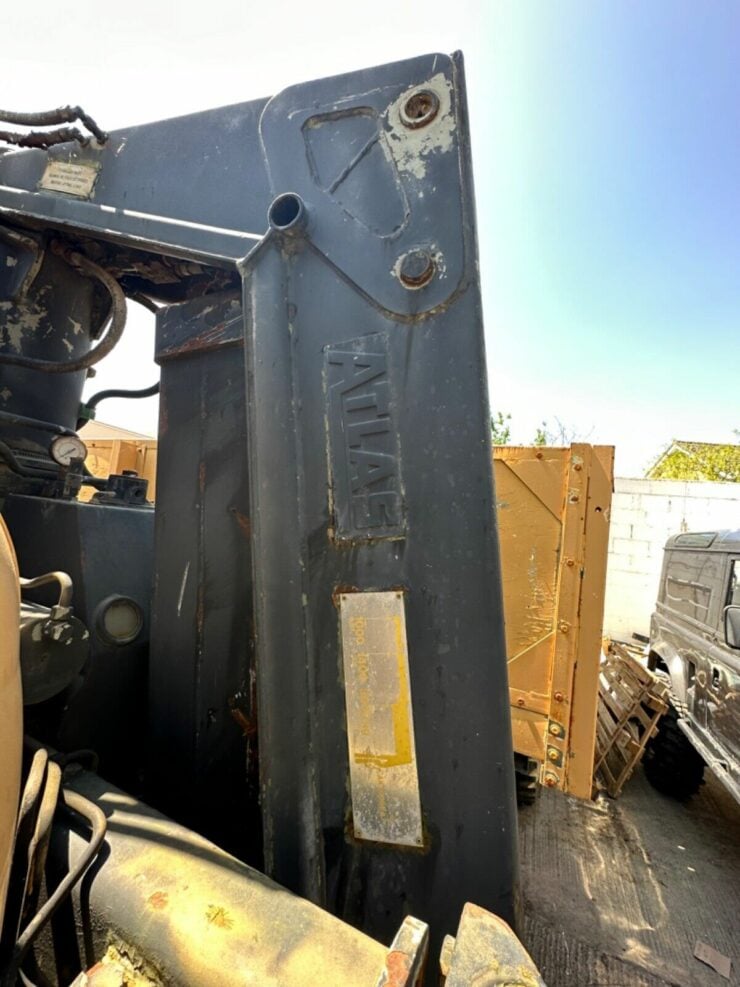
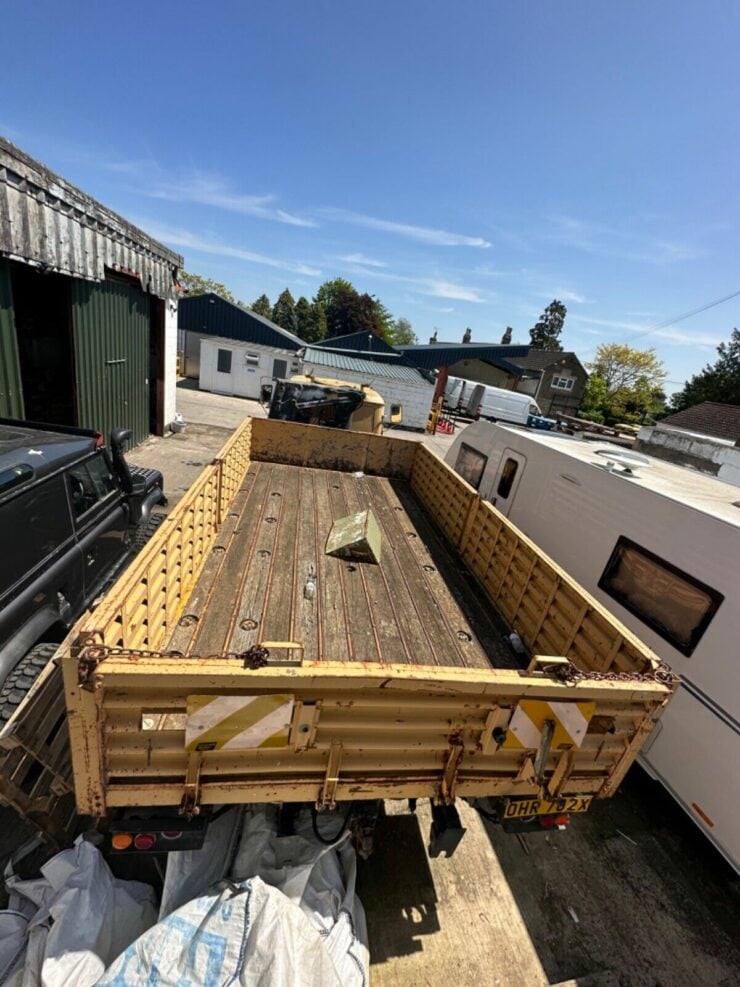
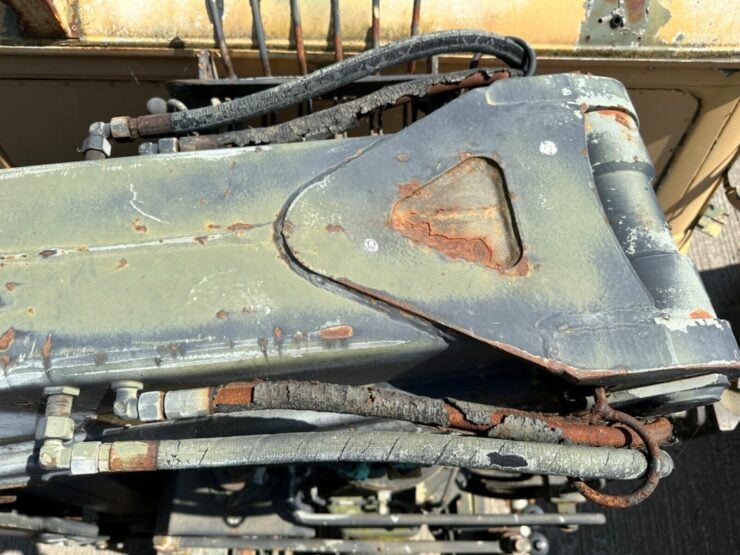
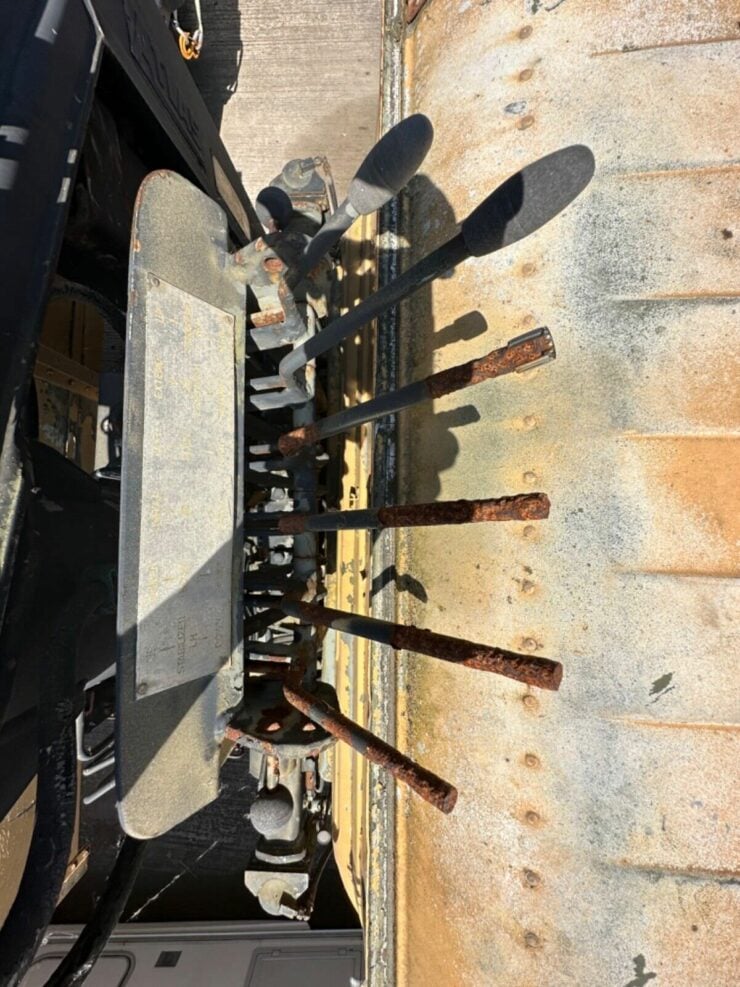
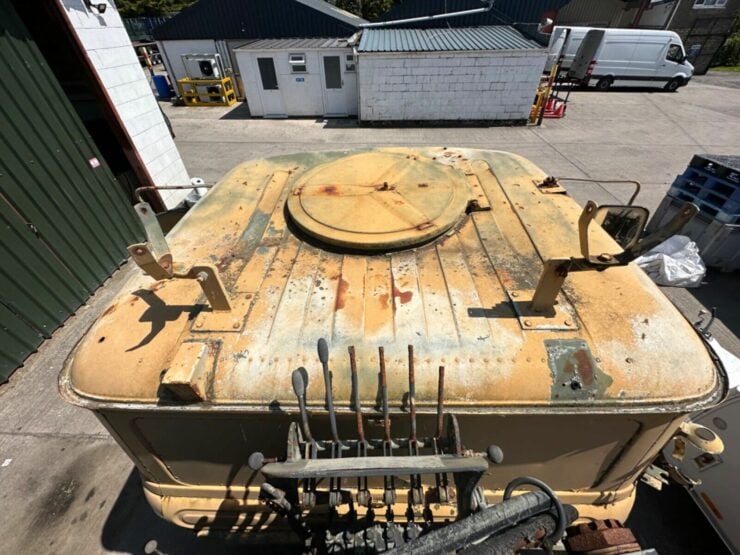
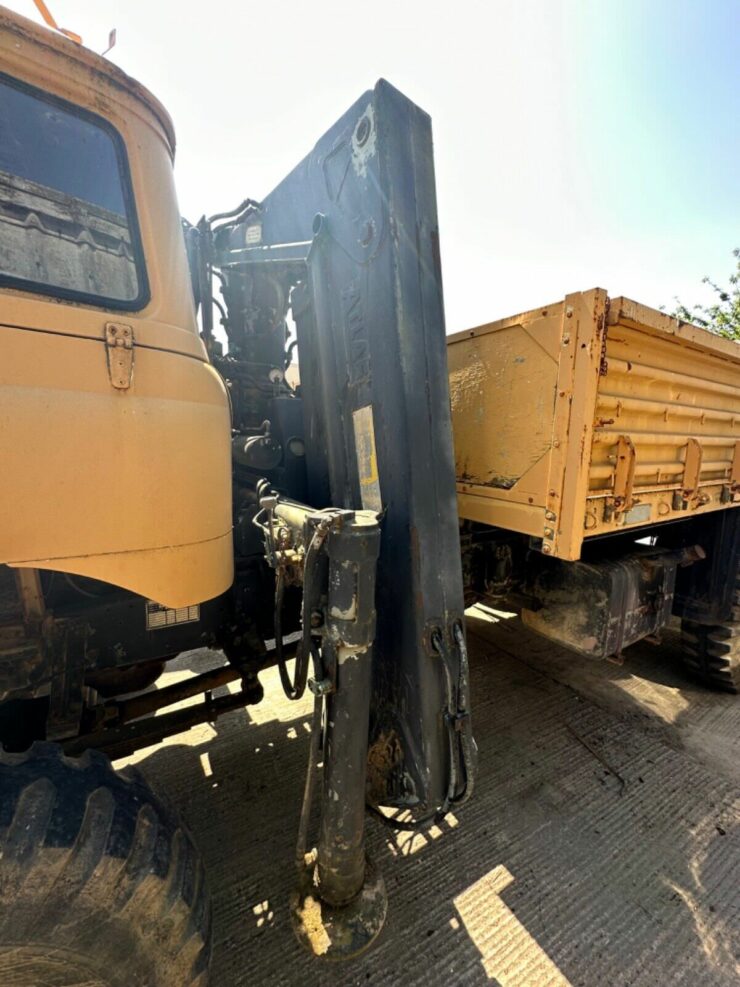
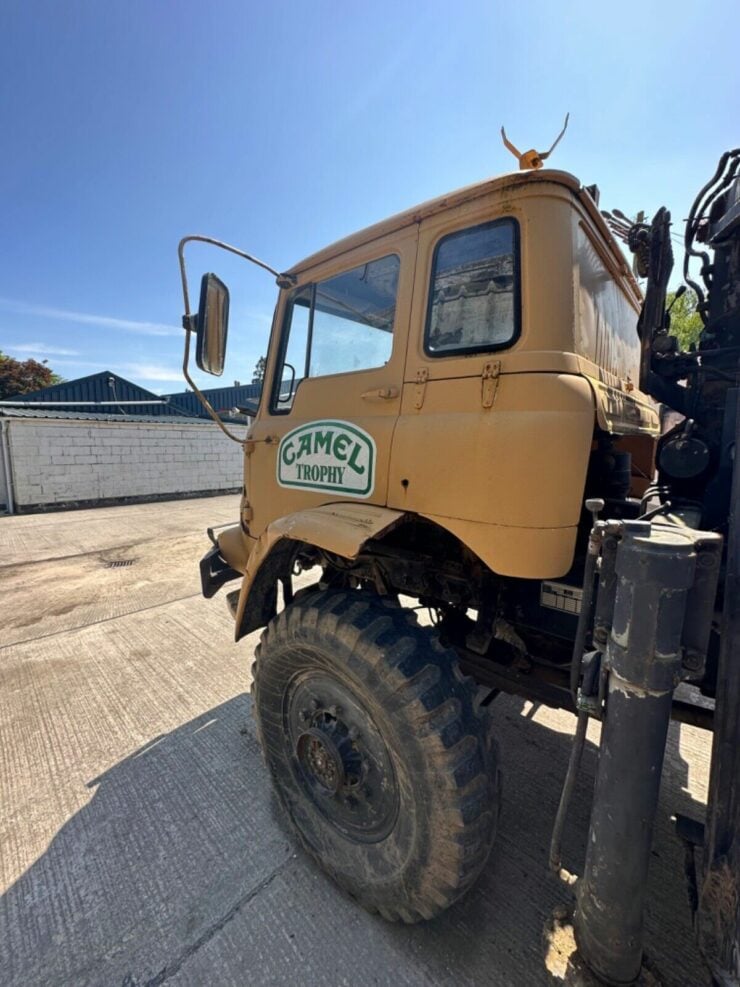
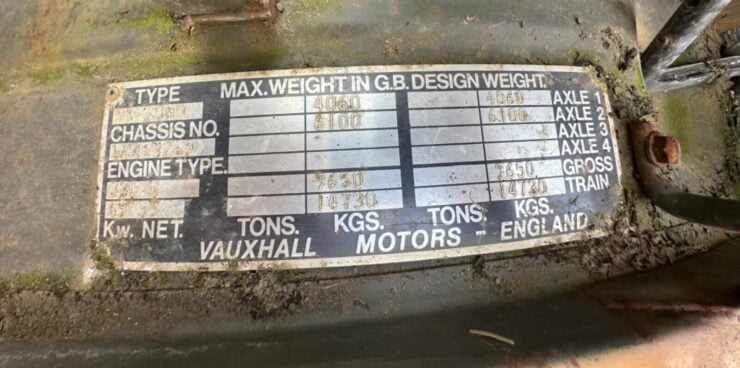
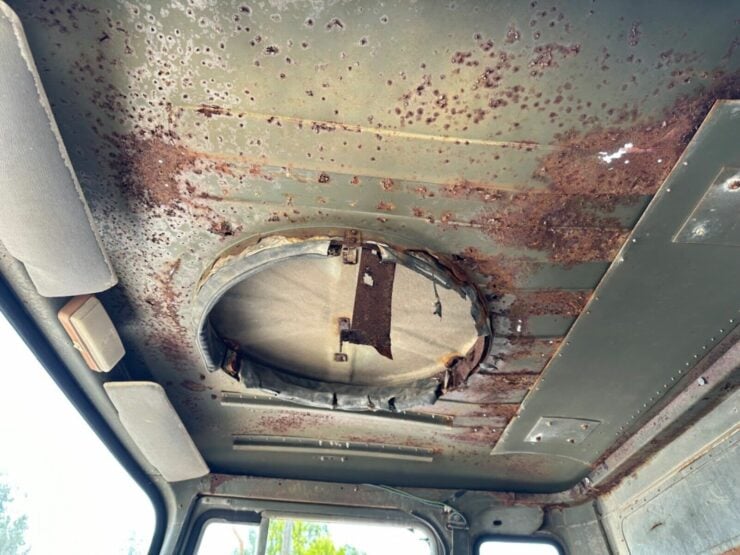
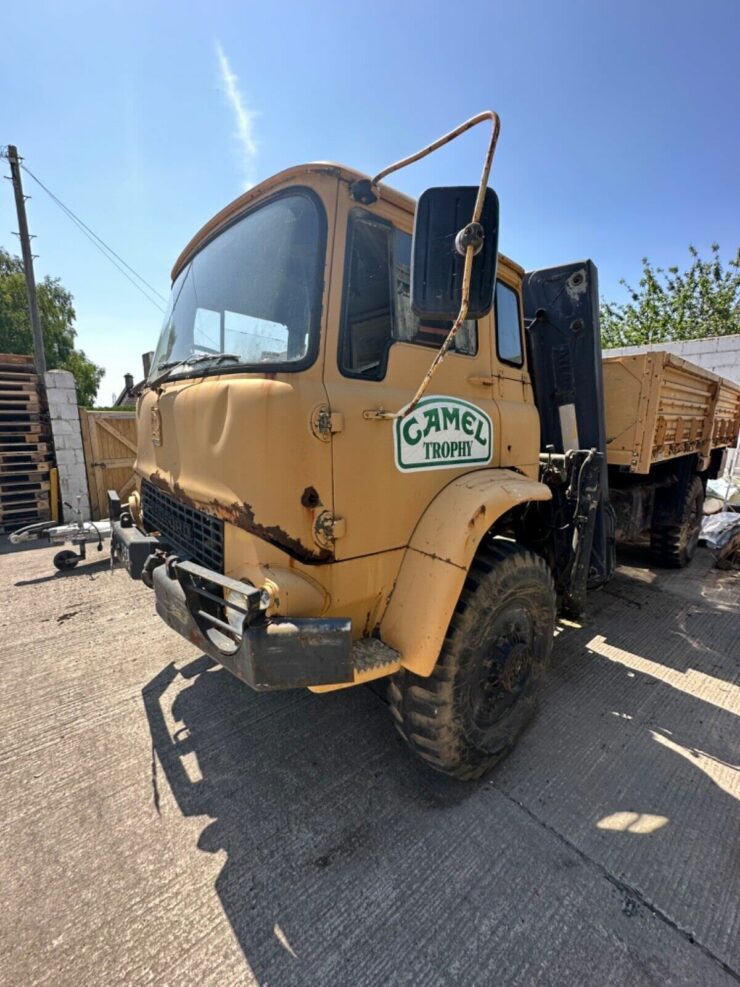
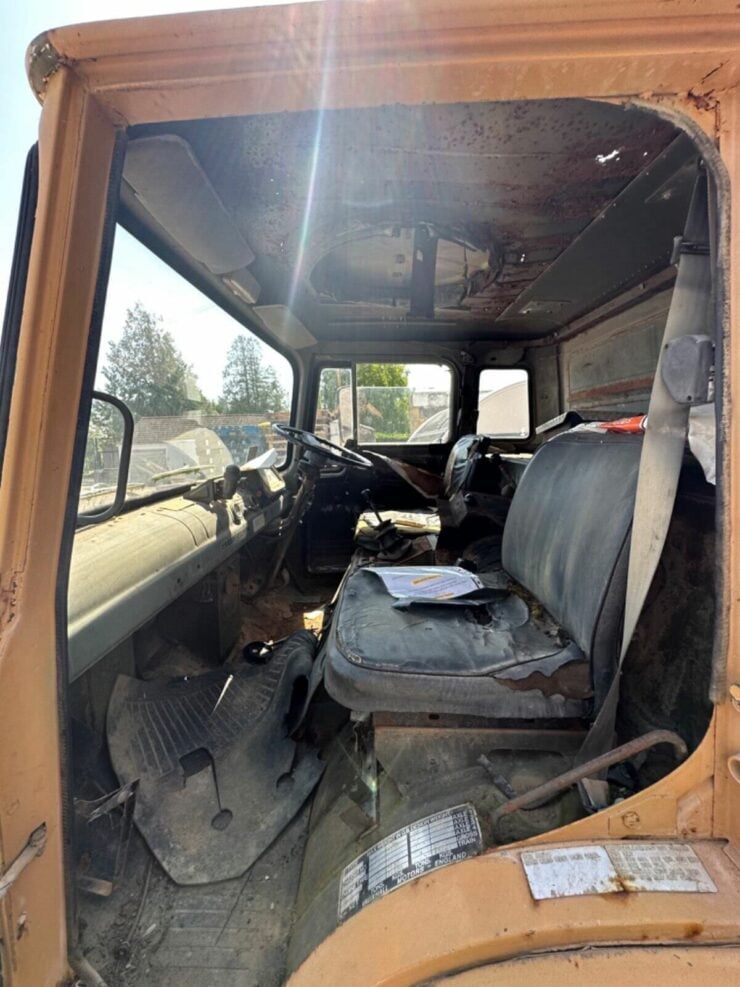
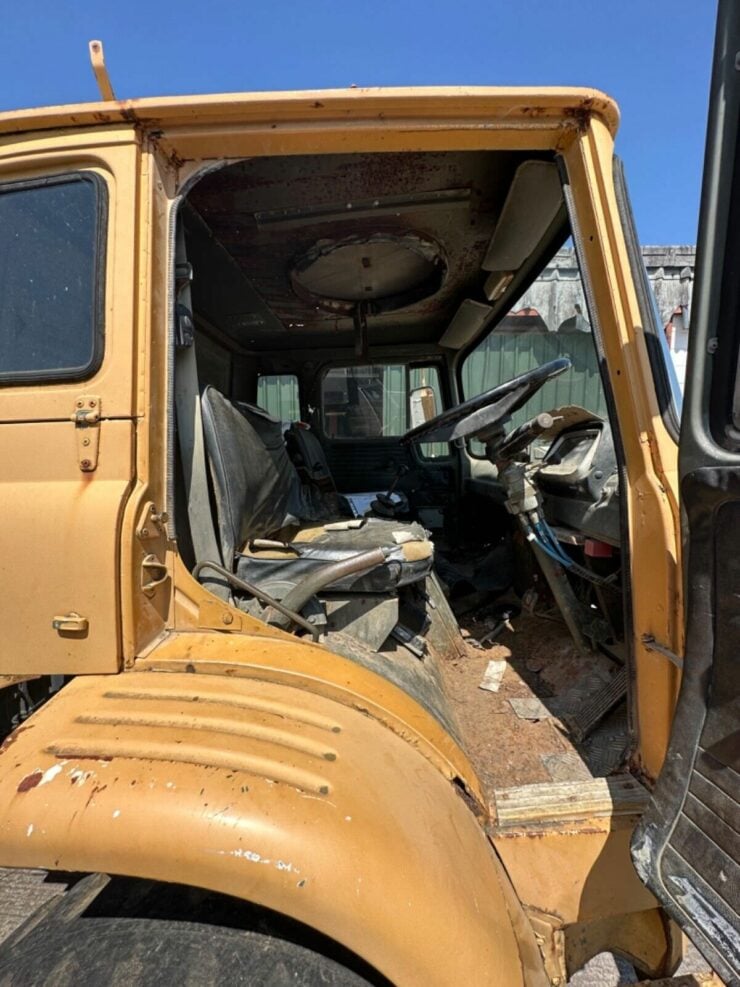
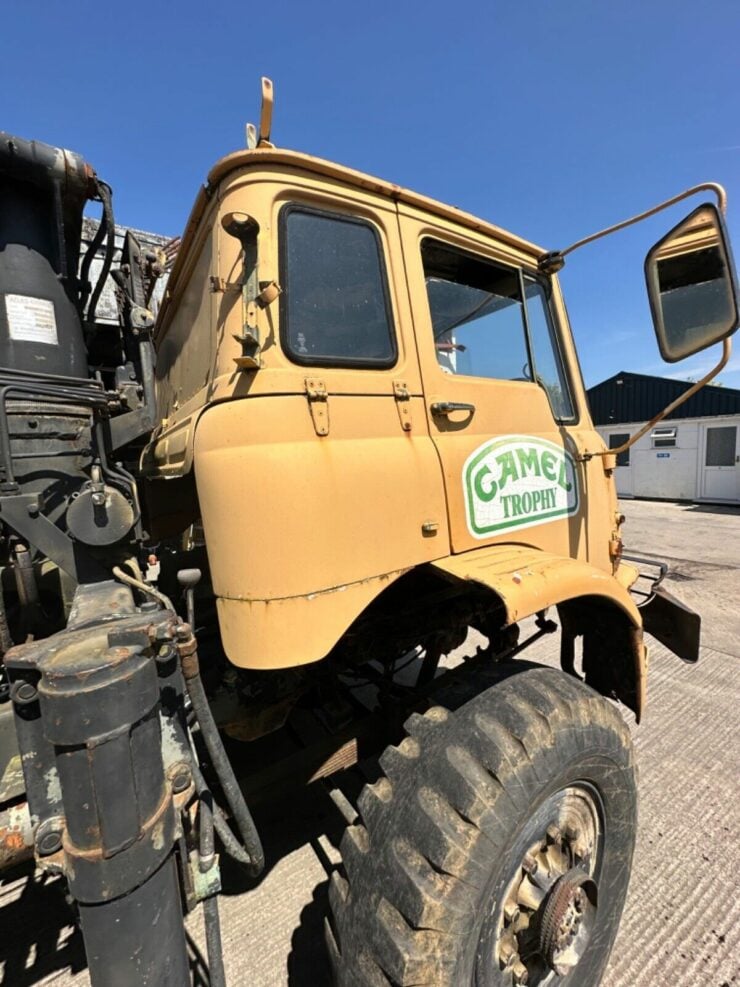
Images courtesy of Wedagingers

